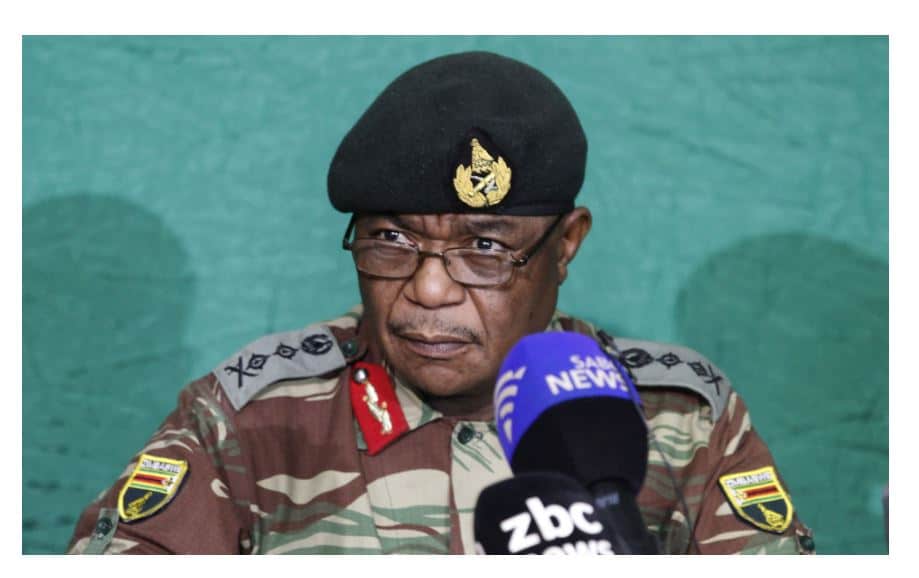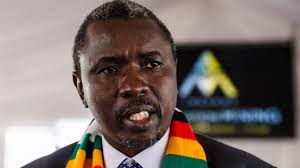How Chiwenga is actually ‘President in everything but name’; VP effectively the winner of Zanu PF’s 2022 congress

VP. Rtd General Chiwenga is believed to be eying for the Party and State Presidency
If claims by his allies are anything to go by, Chiwenga’s schedule is well within timescales. The plan is to take over sometime after the elections.”
VICE PRESIDENT Constantino Chiwenga takes every possible opportunity to dismiss speculation about disaffection with his boss, Emmerson Mnangagwa, and reports of deepening factionalism in the ruling Zanu PF party – one group rallying behind the former defence forces chief; and the other backing the man he propelled to power through the 2017 military coup.
But the vice president’s denials or a rift, and affirmations of loyalty that include public shows of polite deference to Mnangagwa, convince very few; not least the Zanu PF leader’s faction in the ruling party.
Mnangagwa’s endorsement, at Zanu PF’s October Congress, as the party’s leader for another five years and, therefore, its presidential candidate in next year’s general elections, was read by some as representing effective defeat for Chiwenga and a possible burial of his own ambitions for the top job.
Not quite, argues UK-based Zimbabwean academic Simukai Tinhu in an article published in the opinion section of this publication.
“A powerful Chiwenga who thinks his time to take over is soon is the type of a vice president that any leader would rather not have,” writes Tinhu.
As such, it speaks to Mnangagwa’s weakness, that he has failed “to remove his powerful deputy (and) reorder the praesidium through an imposition of a low-profile, unambitious and more malleable second-in-command”.
Since assuming the presidency, Mnangagwa, Tinhu argues, has been trying to get rid of his deputy.
“In search of this end, he tooled up with a two-pronged strategy with its main aspect characterised by dramatic constitutional changes, the most important being an amendment that removes the presidential running-mate clause, giving Mnangagwa authority to appoint and fire his two deputies at government level.
“The second aspect was an aggressive shake-up of the military leadership, with Chiwenga’s allies in the army either retired, or reassigned to the country’s diplomatic missions.
“This operation was aimed at weakening Chiwenga’s hand in Zanu PF politics, culminating in his ouster as vice-president at, or in the run-up to the congress.
“But the shake-up of the constitution and the military wasn’t enough to generate sufficient political capital, and Mnangagwa had no choice but retain Chiwenga as his deputy.”
Despite Mnangagwa’s best efforts, Chiwenga has remained very powerful in Zanu PF and in government, such that he is seen by some “as president in all but title”.
“Mnangagwa’s rival continues to bestride Zanu PF and national politics, a reality which has manifested itself in various ways; the vice-president hectoring Mnangagwa into increasing funding for the military, demanding quotas for army officers in government, state parastatals and the ruling party, and abrasively appointing himself as defence minister, and most recently, health minister,” writes Tinhu.
The conspiracy between Mnangagwa and Chiwenga to takeover power from longtime party and country leader, the now late Robert Mugabe, was NOT reached on the eve of the 2017 coup as suggested by some observers.
According to Chiwenga’s team, writes Tinhu, “the vice-president’s strategy to ascend to power is anchored by the agreement the two leaders made around 2014 when Mnangagwa became vice-president and Chiwenga was still head of the armed forces; that the then army commander would aid Mnangagwa’s rise to the presidency, and in return, Mnangagwa would step down after one term, paving the way for Chiwenga”.
The outcome of the October congress, in particular its endorsement of Mnangagwa as party leader for another five years, does not deal a mortal blow to Chiwenga’s ambitions.
“If claims by his allies are anything to go by, Chiwenga’s schedule is well within timescales. The plan is to take over sometime after the elections,” writes Tinhu,”
“The logic behind taking over after elections is that Chiwenga removed Robert Mugabe through a coup – a salvatory intervention that still gives him an upper hand in the two’s relations – and the momentum gathered by Chiwenga’s removal of Mugabe secured Mnangagwa’s electoral victory in 2018.
“It is now Mnangagwa’s turn to secure Chiwenga’s first term through the 2023 elections and step down. In other words, the 2022 congress was never the time and vehicle through which power was to be transferred.”






